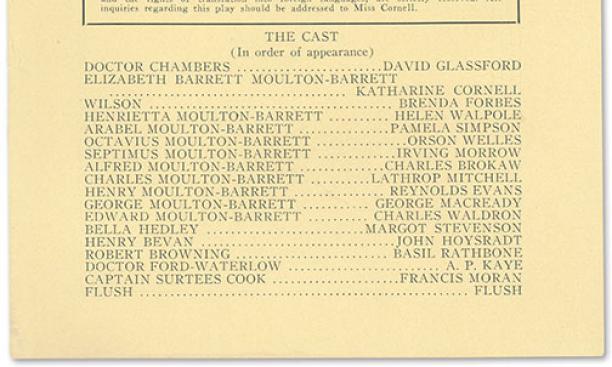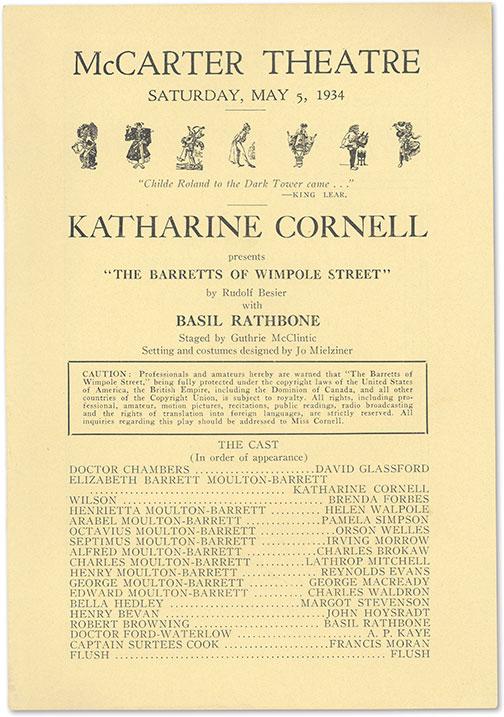

Among the cast of The Barretts of Wimpole Street at McCarter Theatre in May 1934, an unknown actor sparkled in his first American role: Orson Welles, a day shy of 19. Princeton connections were woven throughout the career of this genius who revolutionized radio and cinema and whose centennial is being celebrated this month.
Welles alludes to his childhood in the 1942 film The Magnificent Ambersons, Welles’ second feature film (after Citizen Kane), which was based on a novel by Booth Tarkington 1893. Welles later explained that his dad, an inventor of bicycle lamps in Wisconsin, had been friends with Tarkington and provided inspiration for the main character.
A protégé of playwright and novelist Thornton Wilder *26, the precocious Welles founded the Mercury Theatre in New York in 1937 and became famous for daring productions. Princeton thespians took a lively interest, and Theatre Intime president Richard Baer ’38 (who changed his name to Barr) went to work for Welles after graduation, becoming his right-hand man. One of Baer’s first assignments was to play “a voice in the crowd” for a Halloween lark, the radio broadcast of War of the Worlds.
For that broadcast, the scriptwriter had set the Martian attack to take place three miles east of Princeton, and Welles stepped to the mike as Professor Richard Pierson, a faculty astronomer.
When the broadcast sparked fear and outrage, reporters everywhere sought to interview Welles — who granted an exclusive to The Daily Princetonian. He said that Princeton, “the focal point of the attack,” had remained calmer than most of the country.
Back on campus, a young psychology professor, Hadley Cantril, became fascinated by the implications of Welles’ hoax broadcast. His oft-cited 1940 book, The Invasion from Mars: A Study in the Psychology of Panic, recently has been accused of grossly exaggerating the extent of public hysteria, thereby creating a durable myth. No matter — he had helped to burnish the tremendous reputation of Welles.
